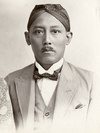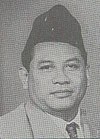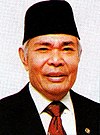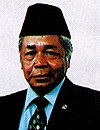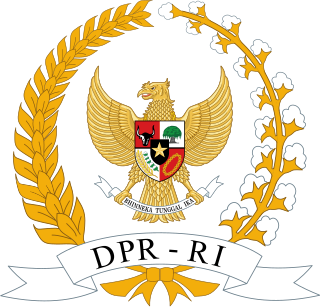
The House of Representatives of the Republic of Indonesia is one of two elected chambers of the People's Consultative Assembly (MPR), the national legislature of Indonesia. It is considered the lower house, while the Regional Representative Council (DPD) serve as the upper house; while the Indonesian constitution does not explicitly mention the divide, the DPR enjoys more power, privilege, and prestige compared to the DPD.

Wilopo was an Indonesian politician and lawyer. A capable administrator, he served as prime minister of Indonesia from 1952 to 1953. He also held various other positions during his career, including as Minister of Labor, Minister of Economic Affairs, speaker of the Constitutional Assembly, and chairman of the Supreme Advisory Council.

Herman Johannes was an Indonesian professor, scientist, politician and National Hero. Johannes was the rector of Universitas Gadjah Mada in Yogyakarta (1961–1966), Coordinator for Higher Education from 1966 to 1979, a member of Indonesia's Presidential Supreme Advisory Council from 1968 to 1978, and the Minister for Public Works and Energy (1950–1951). He was also a member of the Executive Board of UNESCO from 1954 to 1957.

The Investigating Committee for Preparatory Work for Independence, sometimes referred to as the Investigating Committee for Preparatory Work for Indonesian Independence, was an organization set up in March 1945 by the Japanese military authority in Java during the Japanese occupation of the Dutch East Indies as the initial stage of the establishment of independence for the area under the control of the Japanese 16th Army. The BPUPK held two plenary meetings; the first was from 28 May to 1 June 1945 and the second was between 10 and 17 July 1945.

Raden Mas Soewardi Soerjaningrat ; from 1922 also known as Ki Hadjar Dewantara, which is also written as Ki Hajar Dewantoro to reflect its Javanese pronunciation, was a leading Indonesian independence movement activist, writer, columnist, politician, and pioneer of education for native Indonesians in Dutch colonial times. He founded the Taman Siswa school, an institution that provided education for indigenous commoners, which otherwise was limited to the Javanese aristocracy and the Dutch colonials.

The Preparatory Committee for Indonesian Independence, PPKI, Japanese: 独立準備委員会, romanized: Dokuritsu Junbi Iinkai) was a body established on 7 August 1945 to prepare for the transfer of authority from the occupying Japanese to Indonesia. It approved and promulgated the first Indonesian constitution, and appointed Sukarno president.

The president of the Republic of Indonesia is the head of state and head of government of the Republic of Indonesia. The president leads the executive branch of the Indonesian government and is the commander-in-chief of the Indonesian National Armed Forces. Since 2004, the president and vice president are directly elected to a five-year term, once renewable, allowing for a maximum of 10 years in office.

Benedictus Mang Reng Say was an Indonesian politician who was appointed Vice Chairman of the People's Representative Council of Mutual Assistance 1966–1971. In Indonesia's historical records Ben Mang Reng Say along with Frans Seda plays an important role in the Rome meeting under Foreign Minister Adam Malik and General Murtopo in order to discuss East Timor's peaceful integration into the unitary state of Indonesia territory.

Sidarto Danusubroto is an Indonesian politician and a retired police officer, who is serving as a member of Indonesia's Presidential Advisory Board. A member of the Indonesian Democratic Party of Struggle, he previously served as speaker of the People's Consultative Assembly, from 2013 until 2014, following the death of Taufiq Kiemas.
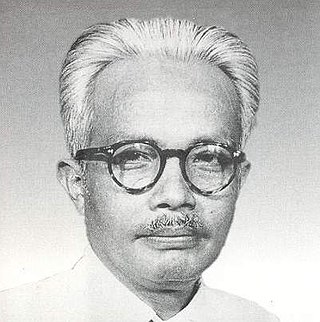
Ki Sarmidi Mangunsarkoro acted as the Minister of Education and Culture of Indonesia in 1949 until 1950. He is now regarded as a National Hero of Indonesia.
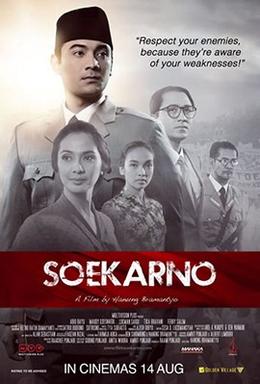
Soekarno is a 2013 Indonesian biographical film directed by Hanung Bramantyo and written by Ben Sihombing. This film tells the story of the life of the late Sukarno, the first president of Indonesia. Sukarno, who was born with the name "Kusno", was one of the major figures who played an important part in the fight for Indonesia's independence from Dutch colonial rule. This film stars Ario Bayu as Sukarno.

Diah Permana Rachmawati Sukarnoputri was an Indonesian politician. Her father was Indonesia's founding president Sukarno and her elder sister is Megawati Sukarnoputri, who was Indonesia's fifth president.

Sartono was an Indonesian politician and lawyer who served as the first speaker of the People's Representative Council (DPR) from 1950 until 1960. Born to a noble ethnic-Javanese family, Sartono studied law at Leiden University. During his studies, he joined the Perhimpoenan Indonesia association and became an advocate for Indonesian independence. After graduating, he opened a law practice and helped found the Indonesian National Party (PNI) in 1927. When several party leaders were arrested by the colonial government in 1929, he became one of their defense lawyers and unsuccessfully argued for their acquittal. Following the arrest of its leaders, PNI became paralyzed and the party subsequently suspended its activities. In its place, Sartono founded a new political party, Partindo, which sought to achieve independence through non-cooperation and mass action. Partindo lasted until 1936, when it decided to dissolve itself. After Partindo's dissolution, Sartono helped found another party, Gerindo, which advocated for the creation of an Indonesian parliament.

Presidential Advisory Council is a non-structural government agency that serves as an advisory council for the President of Indonesia. The council was formed in 2007 during the presidency of Susilo Bambang Yudhoyono, and is modelled after the former constitutional Supreme Advisory Council that was disbanded in 2003.
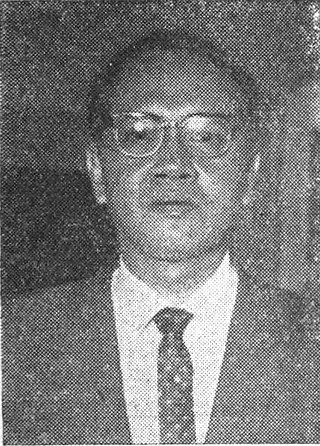
Sujono Hadinoto was an Indonesian politician, lawyer, and academician. Born in Blora Regency, he studied law in the Rechts Hogeschool. After graduating, he became active in the Indonesian independence movement. During the Indonesian National Revolution, Sujono became a member of the Indonesian National Party, later serving as party chairman from 1947 until 1950. Following the recognition of Indonesian sovereignty in 1949, he served as Minister of Economic Affairs in the Soekiman Cabinet. He later became dean of the Faculty of Law of the University of Indonesia. In 1964, he was appointed to the Supreme Advisory Council by Sukarno, and in 1966, he was appointed Ambassador of Indonesia to Hungary. He served as ambassador until 1970. He died on 29 December 1977 in Jakarta, and was buried in Bogor.
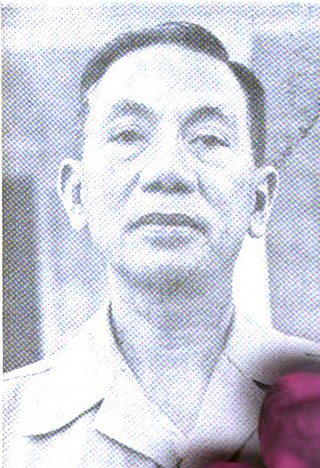
Soetardjo Kartohadikusumo was an Indonesian politician who served as the first Governor of West Java in 1945. A former member of the Volksraad, he was also renowned for the 1936 Soetardjo Petition.

The Central Advisory Council was the name given to bodies established by the Japanese military administration in Java and Sumatra in 1943 during the Japanese occupation of the Dutch East Indies to notionally provide Indonesians with popular representation.

Prawoto Mangkusasmito was an Indonesian politician who served as the final chairman of the Masyumi political party prior to its dissolution in 1960. He also served as the Deputy Prime Minister of Indonesia during the Wilopo Cabinet between 1952 and 1953.

Margono Djojohadikusumo was an Indonesian politician and banker. He was the founder and the first president of Bank Negara Indonesia, and was also a member of the Investigating Committee for Preparatory Work for Independence.



